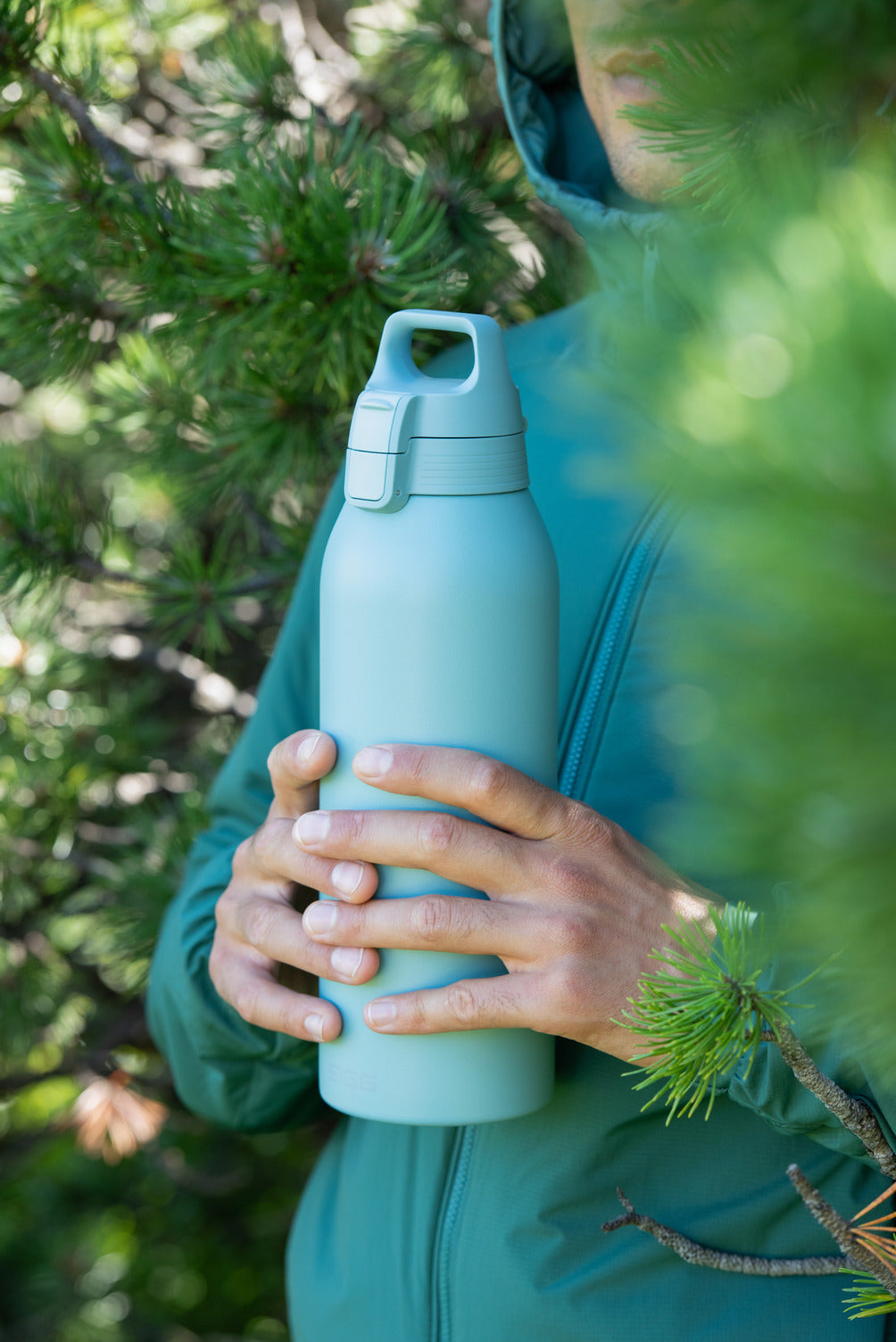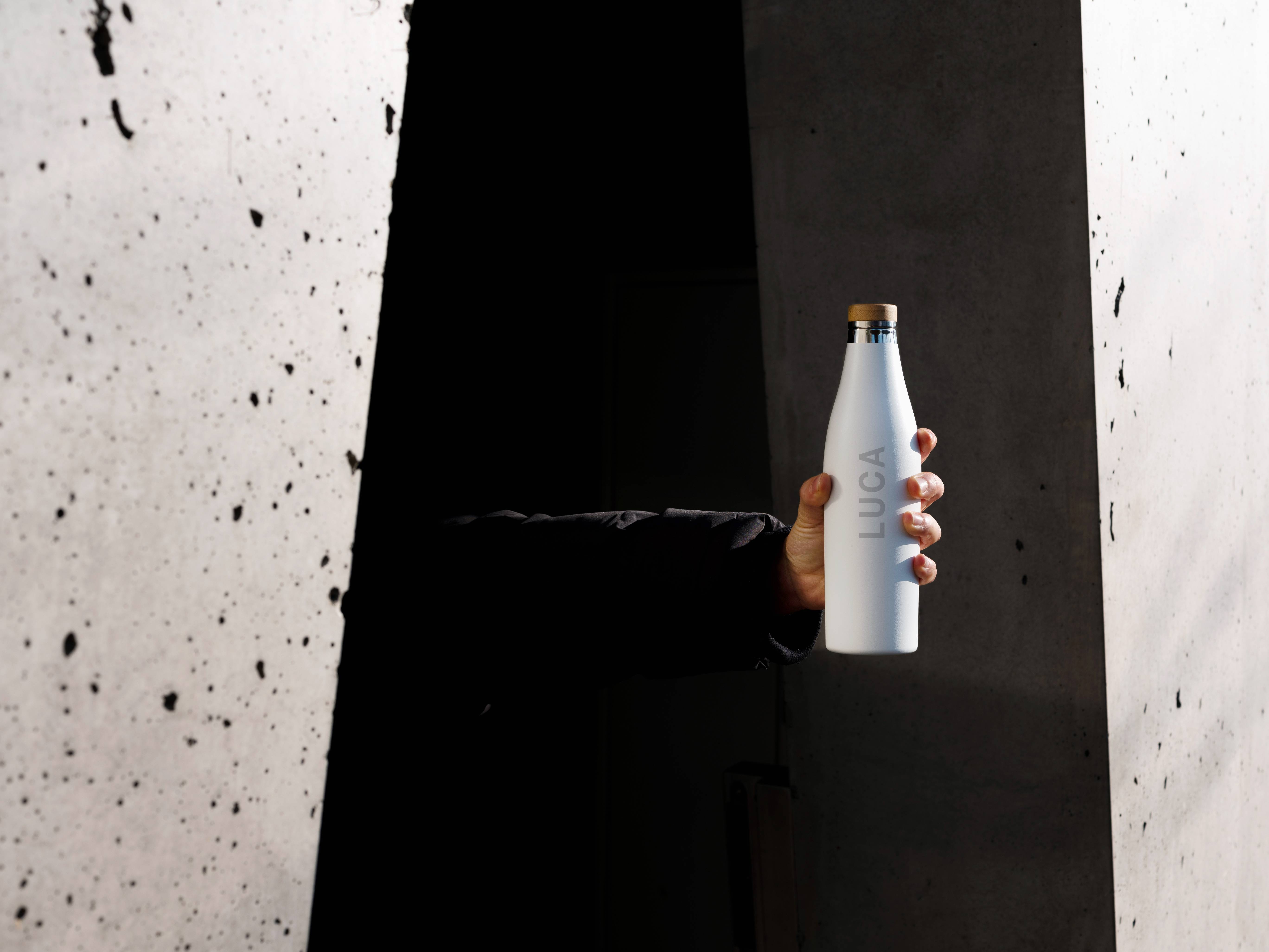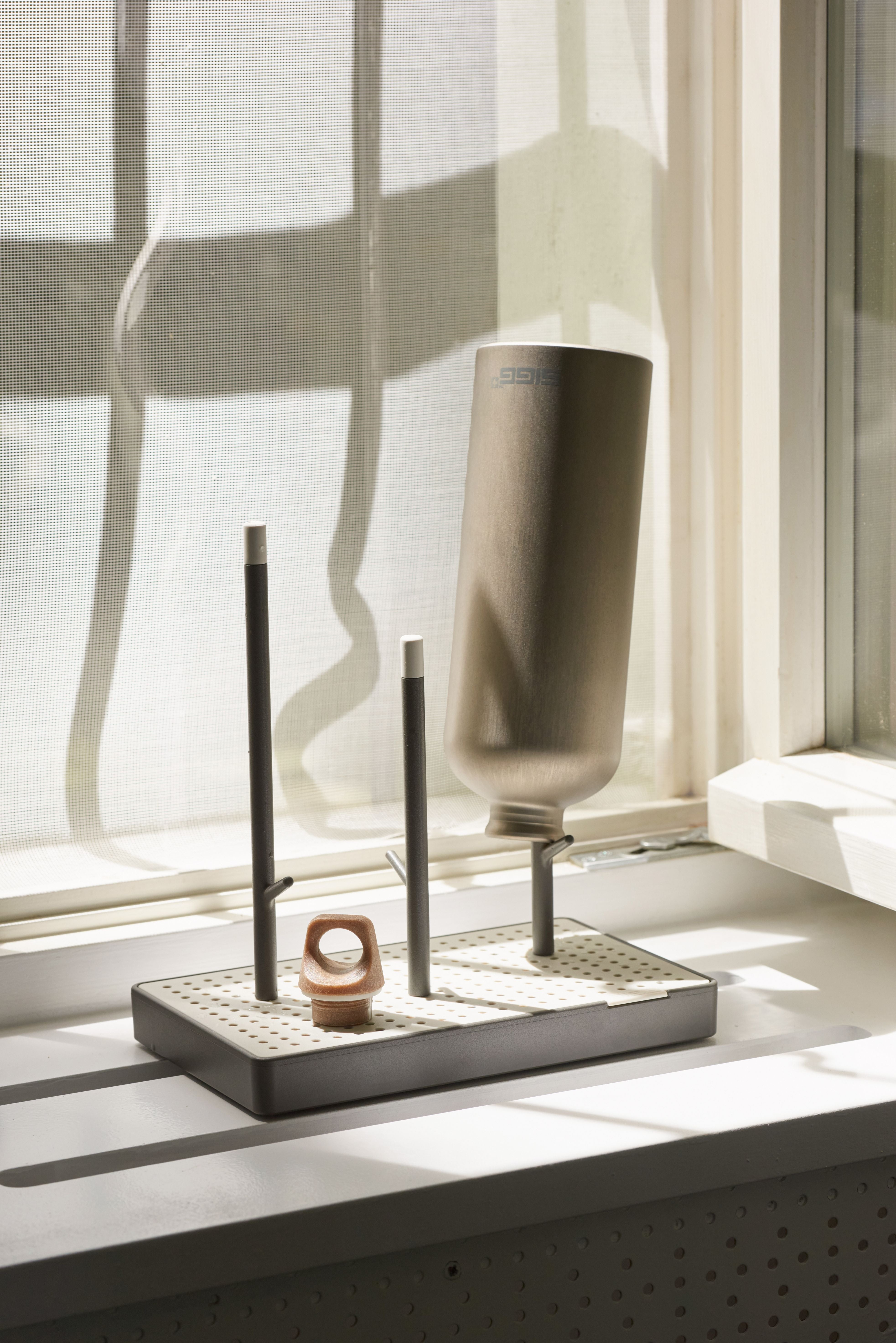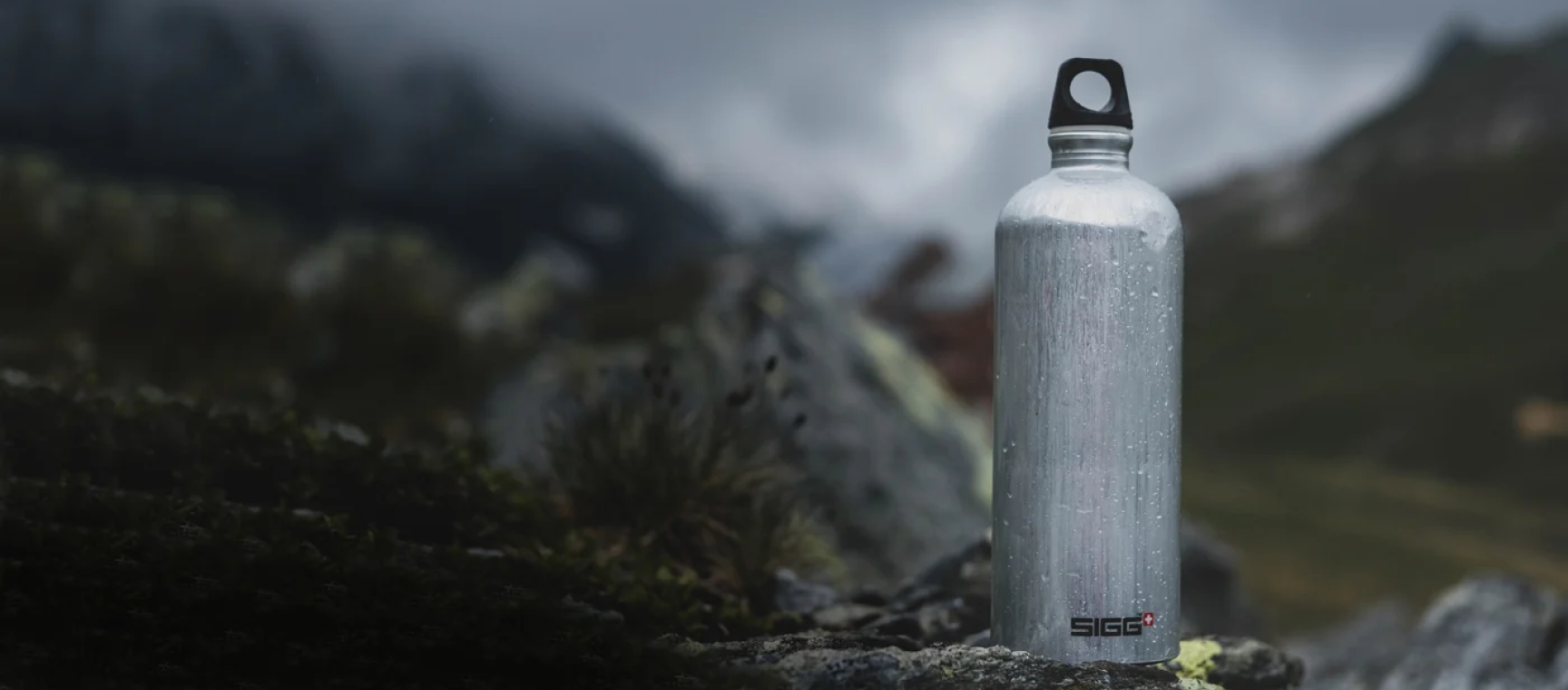Together with ClimatePartner, we have measured the carbon emissions generated by raw materials, logistics, production and disposal during the manufacture of our aluminum bottle collection: the so-called product carbon footprint.
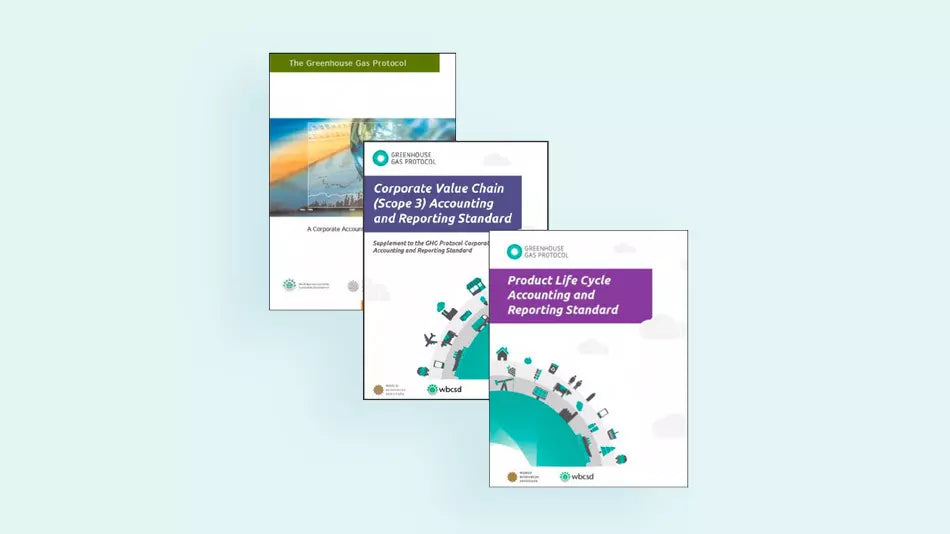
CALCULATION OF OUR CARBON FOOTPRINT
The calculation is based on internationally recognized standards: Greenhouse Gas Protocol A Corporate Accounting and Reporting Standard, GHG Protocol Corporate Value Chain (Scope 3) Standard and Greenhouse Gas Protocol Product Life Cycle Accounting and Reporting Standard.
At our plant in Frauenfeld, 100% of the waste is reused and the water used in production is collected and recycled in a closed system.to further reduce our company's carbon footprint, we have introduced the switch to PCR aluminum for the entire aluminum bottle collection. All our aluminum bottles are made from 100% recycled material.
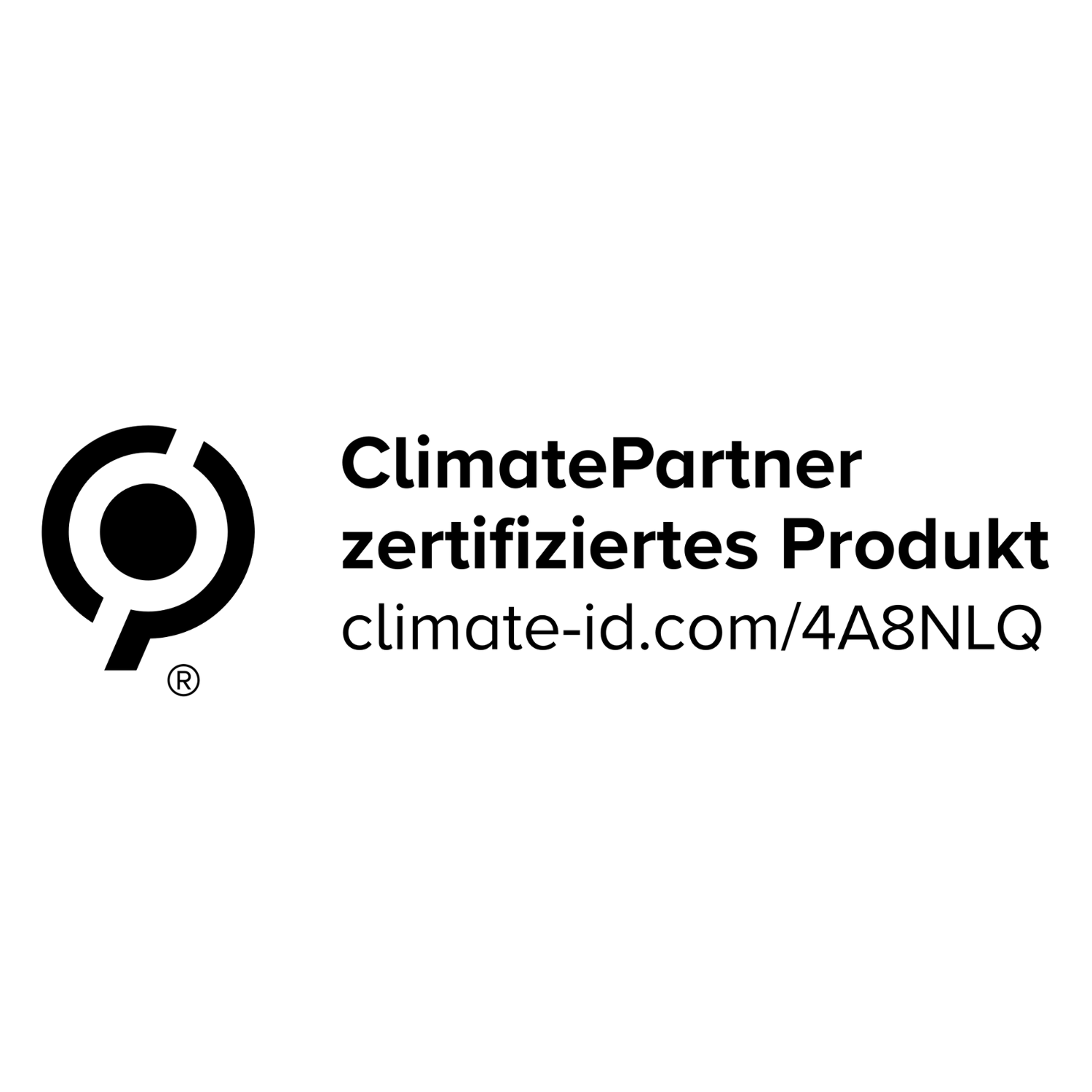
CLIMATE-PARTNER SYMBOL
Every product in our online shop that is marked with the ‘ClimatePartner Certified’ symbol is made from 100% recycled aluminium.
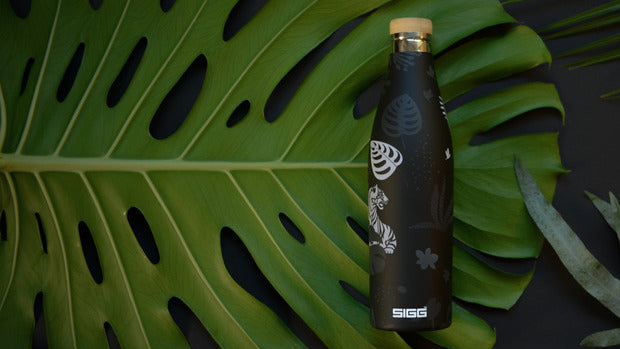
SUSTAINABILITY IN A BOTTLE
Based on the assumption that a reusable water bottle is used three times a week over a period of 10 years, purchasing one reusable water bottle can save around 1500 PET bottles!
CO2 COMPENSATION THROUGH CERTIFIED PROJECTS
We compensate for all currently unavoidable CO2 emissions from the aluminum bottle collection by supporting various climate protection projects. This means that the aluminum bottle collection is ‘ClimatePartner Certified’. Climate projects save CO2 emissions - for example by providing clean drinking water to communities and reducing the use of firewood in water treatment, which leads to a reduction in greenhouse gas emissions from the combustion process.

